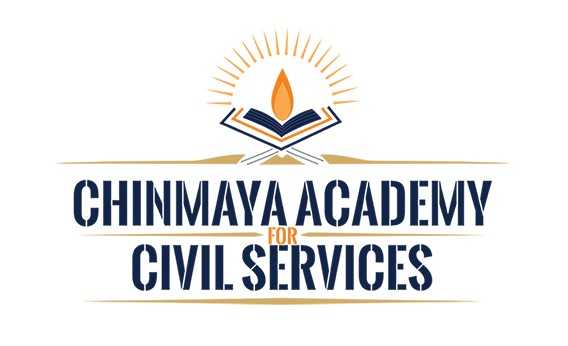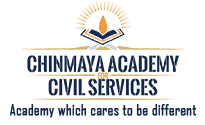The Civil Services Exam conducted by UPSC has three stages – Prelims, Mains, and Interview. When appearing for the Mains exam, candidates have to choose one optional subject. This selection plays a crucial role in determining the candidate’s ranking in the IAS exam. The UPSC list of optional subjects consists of 25 non-literature and 23 literature subjects, including Hindi. Lately, the success rate of literature subjects has been on the rise.
This article will provide information on the IAS syllabus for the Hindi Literature optional subject. Hindi is one of the widely understood languages in India and is used by the government as an official language for communication, alongside English. It is also an optional language paper in the IAS Mains exam.
The syllabus for UPSC Hindi literature covers the development of the Devanagari script, the growth of Hindi as a widely used language during the independence movement, and Hindi grammar. Additionally, it focuses on literary criticism of various Hindi works, notable writers and their writing styles. This optional subject carries a weight of 500 marks, divided into two papers, each carrying 250 marks.
HINDI
PAPER I
(Answers must be written in Hindi)
Section A
1. History of Hindi Language and Nagari Lipi
I. Grammatical and applied forms of Apbhransh, Awahatta & Arambhik Hindi.
II. Development of Braj and Awadhi as Literary language during medieval period.
III. Early form of Khari-boli in Siddha-Nath Sahitya, Khusero, Sant Sahitaya, Rahim etc. and Dakhni Hindi.
IV. Development of Khari-boli and Nagari Lipi during 19th Century.
V. Standardisation of Hindi Bhasha & Nagari Lipi.
VI. Development of Hindi as a National Language during freedom movement.
VII. The development of Hindi as a National Language of Union of India.
VIII. Scientific & Technical Development of Hindi Language.
IX. Prominent dialects of Hindi and their interrelationship.
X. Salient features of Nagari Lipi and the efforts for its reform & Standard form of Hindi.
XI. Grammatical structure of Standard Hindi.
Section B
2. History of Hindi Literature
I. The relevance and importance of Hindi literature and tradition of writing History of Hindi Literature.
II. Literary trends of the following four periods of history of Hindi Literature.
A : Adikal—Sidh, Nath and Raso Sahitya.
Prominent poets—Chandvardai, Khusaro, Hemchandra, Vidyapati.
B : Bhaktikal—Sant Kavyadhara, Sufi Kavyadhara, Krishna Bhaktidhara and Ram Bhaktidhara.
Prominent Poets—Kabir, Jayasi, Sur & Tulsi.
C : Ritikal—Ritikavya, Ritibaddhkavya & Riti Mukta Kavya.
Prominent Poets—Keshav, Bihari,Padmakar and Ghananand.
D : Adhunik Kal—
a. Renaissance, the development of Prose, Bharatendu Mandal.
b. Prominent Writers—Bharatendu, Bal Krishna Bhatt & Pratap Narain Mishra.
c. Prominent trends of modern Hindi Poetry:Chhayavad, Pragativad, Prayogvad, Nai Kavita,Navgeet and Contemporary poetry and Janvadi Kavita.
Prominent Poets—Maithili Sharan Gupta,Prasad, Nirala, Mahadevi, Dinkar, Agyeya, Muktibodh, Nagarjun.
3. Katha Sahitya
A : Upanyas & Realism
B : The origin and development of Hindi Novels.
C : Prominent Novelists—Premchand, Jainendra, Yashpal, Renu and Bhism Sahani.
D : The origin and development of Hindi short story.
E : Prominent Short Story Writers—Premchand, Prasad, Agyeya, Mohan Rakesh & Krishna Sobti.
4. Drama & Theatre
A : The Origin & Development of Hindi Drama.
B : Prominent Dramatists—Bharatendu, Prasad, Jagdish Chandra Mathur, Ram Kumar Verma, Mohan Rakesh.
C : The development of Hindi Theatre.
5. Criticism
A : The origin and development of Hindi criticism : Saiddhantik, Vyavharik, Pragativadi.
Manovishleshanvadi & Nai Alochana.
B : Prominent critics—Ramchandra Shukla, Hajari Prasad Dwivedi, Ram Vilas Sharma & Nagendra.
6. The other form of Hindi prose—Lalit Nibandh,Rekhachitra, Sansmaran, Yatra-vrittant.
PAPER II
(Answers must be written in Hindi)
The paper will require first-hand reading of the prescribed texts and will test the critical ability of the candidates.
Section A
1. Kabir : Kabir Granthawali, Ed. Shyam Sundar Das (First hundred Sakhis)
2. Soordas : Bhramar Geetsar, Ed. Ramchandra Shukla (First hundred Padas)
3. Tulsidas : Ramcharit Manas (Sundar Kand) Kavitawali (Uttarkand)
4. Jayasi : Padmawat Ed. Shyam Sundar Das (Sinhal Dwip Khand & Nagmativiyog Khand)
5. Bihari : Bihari Ratnakar Ed. Jagnnath Prasad Ratnakar (First 100 Dohas)
6. Maithili Sharan : Bharat Bharati Gupta
7. Prasad : Kamayani (Chinta and Shraddha Sarg)
8. Nirala : Rag-Virag, Ed. Ram Vilas Sharma (Ram Ki Shakti Pooja & Kukurmutta)
9. Dinkar : Kurukshetra
10. Agyeya : Angan Ke Par Dwar (Asadhya Veena)
11. Muktiboth : Brahm Rakhashas
12. Nagarjun : Badal Ko Ghirte Dekha Hai, Akal Ke Bad, Harijan Gatha.
Section B
1. Bharatendu : Bharat Durdasha
2. Mohan Rakesh : Ashadh Ka Ek Din
3. Ramchandra : Chintamani (Part I) (Kavita Kya Shukla Hai, Shraddha Aur Bhakti)
4. Dr. Satyendra : Nibandh Nilaya—Bal KrishnaBhatt, Premchand, Gulab Rai,
Hajari Prasad Dwivedi, Ram Vilas Sharma, Agyeya, Kuber Nath Rai.
5. Premchand Godan, Premchand ki Sarvashreshtha Kahaniyan, Ed. Amrit Rai/Manjusha—Prem Chand ki Sarvashreshtha Kahaniyan. Ed. Amrit Rai.
6. Prasad : Skandgupta
7. Yashpal : Divya
8. Phaniswar Nath : Maila Anchal Renu
9. Mannu Bhandari : Mahabhoj
10. Rajendra Yadav : Ek Dunia Samanantar (All Stories)


